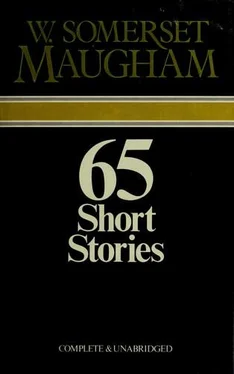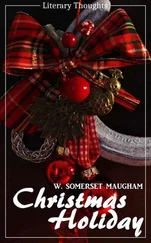Somerset Maugham - Sixty-Five Short Stories
Здесь есть возможность читать онлайн «Somerset Maugham - Sixty-Five Short Stories» весь текст электронной книги совершенно бесплатно (целиком полную версию без сокращений). В некоторых случаях можно слушать аудио, скачать через торрент в формате fb2 и присутствует краткое содержание. Жанр: Фантастика и фэнтези, на русском языке. Описание произведения, (предисловие) а так же отзывы посетителей доступны на портале библиотеки ЛибКат.
- Название:Sixty-Five Short Stories
- Автор:
- Жанр:
- Год:неизвестен
- ISBN:нет данных
- Рейтинг книги:4.5 / 5. Голосов: 2
-
Избранное:Добавить в избранное
- Отзывы:
-
Ваша оценка:
- 100
- 1
- 2
- 3
- 4
- 5
Sixty-Five Short Stories: краткое содержание, описание и аннотация
Предлагаем к чтению аннотацию, описание, краткое содержание или предисловие (зависит от того, что написал сам автор книги «Sixty-Five Short Stories»). Если вы не нашли необходимую информацию о книге — напишите в комментариях, мы постараемся отыскать её.
Sixty-Five Short Stories — читать онлайн бесплатно полную книгу (весь текст) целиком
Ниже представлен текст книги, разбитый по страницам. Система сохранения места последней прочитанной страницы, позволяет с удобством читать онлайн бесплатно книгу «Sixty-Five Short Stories», без необходимости каждый раз заново искать на чём Вы остановились. Поставьте закладку, и сможете в любой момент перейти на страницу, на которой закончили чтение.
Интервал:
Закладка:
It is the meeting-place of East and West. The very new rubs shoulders with the immeasurably old. And if you have not found the romance you expected you have come upon something singularly intriguing. All these strange people live close to each other, with different languages and different thoughts; they believe in different gods and they have different values; two passions alone they share, love and hunger. And somehow as you watch them you have an impression of extraordinary vitality. Though the air is so soft and the sky so blue, you have, I know not why, a feeling of something hotly passionate that beats like a throbbing pulse through the crowd. Though the native policeman at the corner, standing on a platform, with a white club to direct the traffic, gives the scene an air of respectability, you cannot but feel that it is a respectability only of the surface; a little below there is darkness and mystery. It gives you just that thrill, with a little catch at the heart, that you have when at night in the forest the silence trembles on a sudden with the low, insistent beating of a drum. You are all expectant of I know not what.
If I have dwelt on the incongruity of Honolulu, it is because just this, to my mind, gives its point to the story I want to tell. It is a story of primitive superstition, and it startles me that anything of the sort should survive in a civilization which, if not very distinguished, is certainly very elaborate.
I cannot get over the fact that such incredible things should happen, or at least be thought to happen, right in the middle, so to speak, of telephones, tramcars, and daily papers. And the friend who showed me Honolulu had the same incongruity which I felt from the beginning was its most striking characteristic.
He was an American named Winter and I had brought a letter of introduction to him from an acquaintance in New York. He was a man between forty and fifty, with scanty black hair, grey at the temples, and a sharp-featured, thin face. His eyes had a twinkle in them and his large horn spectacles gave him a demureness which was not a little diverting. He was tall rather than otherwise and very spare. He was born in Honolulu and his father had a large store which sold hosiery and all such goods, from tennis racquets to tarpaulins, as a man of fashion could require. It was a prosperous business and I could well understand the indignation of Winter pГЁre when his son, refusing to go into it, had announced his determination to be an actor. My friend spent twenty years on the stage, sometimes in New York, but more often on the road, for his gifts were small; but at last, being no fool, he came to the conclusion that it was better to sell sock-suspenders in Honolulu than to play small parts in Cleveland, Ohio. He left the stage and went into the business. I think after the hazardous existence he had lived so long, he thoroughly enjoyed the luxury of driving a large car and living in a beautiful house near the golf-course, and I am quite sure, since he was a man of parts, he managed the business competently. But he could not bring himself entirely to break his connexion with the arts and since he might no longer act he began to paint. He took me to his studio and showed me his work. It was not at all bad, but not what I should have expected from him. He painted nothing but still life, very small pictures, perhaps eight by ten; and he painted very delicately, with the utmost finish. He had evidently a passion for detail. His fruit pieces reminded you of the fruit in a picture by Ghirlandajo. While you marvelled a little at his patience, you could not help being impressed by his dexterity. I imagine that he failed as an actor because his effects, carefully studied, were neither bold nor broad enough to get across the footlights.
I was entertained by the proprietary, yet ironical air with which he showed me the city. He thought in his heart that there was none in the United States to equal it, but he saw quite clearly that his attitude was comic. He drove me round to the various buildings and swelled with satisfaction when I expressed a proper admiration for their architecture. He showed me the houses of rich men.
'That's the Stubbses' house,' he said. 'It cost a hundred thousand dollars to build. The Stubbses are one of our best families. Old man Stubbs came here as a missionary more than seventy years ago.'
He hesitated a little and looked at me with twinkling eyes through his big round spectacles.
'All our best families are missionary families,' he said. 'You're not very much in Honolulu unless your father or your grandfather converted the heathen.'
'Is that so?'
'Do you know your Bible?'
'Fairly,' I answered.
'There is a text which says: The fathers have eaten sour grapes and the children's teeth are set on edge. I guess it runs differently in Honolulu. The fathers brought Christianity to the Kanaka and the children jumped his land.'
'Heaven helps those who help themselves,' I murmured.
'It surely does. By the time the natives of this island had embraced Christianity they had nothing else they could afford to embrace. The kings gave the missionaries land as a mark of esteem, and the missionaries bought land by way of laying up treasure in heaven. It surely was a good investment. One missionary left the business-I think one may call it a business without offence-and became a land agent, but that is an exception. Mostly it was their sons who looked after the commercial side of the concern. Oh, it's a fine thing to have a father who came here fifty years ago to spread the faith.'
But he looked at his watch.
'Gee, it's stopped. That means it's time to have a cocktail.'
We sped along an excellent road, bordered with red hibiscus, and came back into the town.
'Have you been to the Union Saloon?'
'Not yet.'
'We'll go there.'
I knew it was the most famous spot in Honolulu and I entered it with a lively curiosity. You get to it by a narrow passage from King Street, and in the passage are offices, so that thirsty souls may be supposed bound for one of these just as well as for the saloon. It is a large square room, with three entrances, and opposite the bar, which runs the length of it, two corners have been partitioned off into little cubicles. Legend states that they were built so that King Kalakaua might drink there without being seen by his subjects, and it is pleasant to think that in one or other of these he may have sat over his bottle, a coal-black potentate, with Robert Louis Stevenson. There is a portrait of him, in oils, in a rich gold frame; but there are also two prints of Queen Victoria. On the walls, besides, are old line engravings of the eighteenth century, one of which, and heaven knows how it got there, is after a theatrical picture by De Wilde; and there are oleographs from the Christmas supplements of the Graphic and the Illustrated London News of twenty years ago. Then there are advertisements of whisky, gin, champagne, and beer; and photographs of baseball teams and of native orchestras.
The place seemed to belong not to the modern, hustling world that I had left in the bright street outside, but to one that was dying. It had the savour of the day before yesterday. Dingy and dimly lit, it had a vaguely mysterious air and you could imagine that it would be a fit scene for shady transactions. It suggested a more lurid time, when ruthless men carried their lives in their hands, and violent deeds diapered the monotony of life.
When I went in, the saloon was fairly full. A group of business men stood together at the bar, discussing affairs, and in a corner two Kanakas were drinking. Two or three men who might have been store-keepers were shaking dice. The rest of the company plainly followed the sea; they were captains of tramps, first mates, and engineers. Behind the bar, busily making the Honolulu cocktail for which the place was famous, served two large half-castes, in white, fat, clean-shaven and dark-skinned, with thick, curly hair and large bright eyes.
Читать дальшеИнтервал:
Закладка:
Похожие книги на «Sixty-Five Short Stories»
Представляем Вашему вниманию похожие книги на «Sixty-Five Short Stories» списком для выбора. Мы отобрали схожую по названию и смыслу литературу в надежде предоставить читателям больше вариантов отыскать новые, интересные, ещё непрочитанные произведения.
Обсуждение, отзывы о книге «Sixty-Five Short Stories» и просто собственные мнения читателей. Оставьте ваши комментарии, напишите, что Вы думаете о произведении, его смысле или главных героях. Укажите что конкретно понравилось, а что нет, и почему Вы так считаете.









